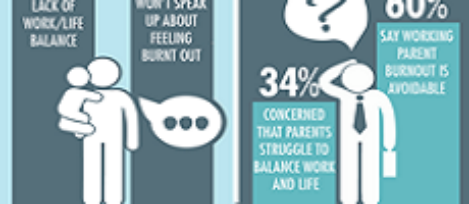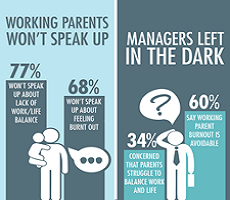August 4, 2017
Millennials email habits are at unhealthy levels, resulting in round the clock stress

Email overload amongst under-35s has reached unhealthy levels, a new survey claims, with 42 percent saying they would feel stressed if they were not able to access their emails, compared with a fifth (22 percent) of employees aged between 45-54 years old. According to new research from Bupa it’s now the norm for younger workers to constantly dip into work via email in the early morning and late evening. Although many businesses have taken steps to help ensure their employees have a good work-life balance, it is clear that the idea that the best way to progress is to be available around the clock persists amongst millennials. A fifth (22 percent) of millennials believe that they would be viewed as uncommitted to their job if they did not respond to emails outside of work hours. A third (33 percent) believe that their career progression could be impacted if they only respond to work emails in work time, compared with less than 10 percent of employees over 55 years old.












 Long working hours are embedded into Small and medium sized firm’s (SME) culture, new research by AXA PPP healthcare has claimed, with 47 percent of employees in SMEs across the UK regularly working four or more hours of overtime per week, 27 percent of these putting in seven or more hours and for half (52 percent), the extra hours are unpaid. In addition, 22 percent of employees take fewer than 30 minutes for lunch, 19 percent have cancelled family time and 19 percent have missed a child’s event such as a school play due to working over and above their contracted hours. Over half (54 percent) of employees have continued to work after putting children to bed. With Britain’s small and medium sized firms making up 99.9 percent of the UK’s private sector businesses, employing nearly 3/5 of its workforce and accounting for 48 percent of the turnover this accounts for a lot of workers.
Long working hours are embedded into Small and medium sized firm’s (SME) culture, new research by AXA PPP healthcare has claimed, with 47 percent of employees in SMEs across the UK regularly working four or more hours of overtime per week, 27 percent of these putting in seven or more hours and for half (52 percent), the extra hours are unpaid. In addition, 22 percent of employees take fewer than 30 minutes for lunch, 19 percent have cancelled family time and 19 percent have missed a child’s event such as a school play due to working over and above their contracted hours. Over half (54 percent) of employees have continued to work after putting children to bed. With Britain’s small and medium sized firms making up 99.9 percent of the UK’s private sector businesses, employing nearly 3/5 of its workforce and accounting for 48 percent of the turnover this accounts for a lot of workers.




 The overwhelming majority of UK employees (81 percent) are working beyond their contracted hours, claims a report from recruitment firm
The overwhelming majority of UK employees (81 percent) are working beyond their contracted hours, claims a report from recruitment firm 




 The Government is being urged to reassess its plans to request an opt-out from the EU Working Time Directive, when it seeks to renegotiate the terms of the UK’s membership of the EU. The Directive stipulates a 48 hour working week, which the Government has argued is stifling competitiveness and flexibility. According to research by
The Government is being urged to reassess its plans to request an opt-out from the EU Working Time Directive, when it seeks to renegotiate the terms of the UK’s membership of the EU. The Directive stipulates a 48 hour working week, which the Government has argued is stifling competitiveness and flexibility. According to research by 








December 5, 2017
How do you really go about creating a great place to work?
by Jo Sutherland • Comment, Wellbeing, Workplace design
The topic of workplace wellbeing is becoming increasingly prevalent. And for good reason. In the UK, 45 million working days are lost due to stress, anxiety and depression and the Chartered Institute of Personnel and Development (CIPD) Absence Management survey reveals that over two fifths of organisations have seen an increase in reported mental health problems over the last year. What’s more, a recent government report found that up to 300,000 people leave their jobs each year due to mental health-related issues. Last month, Symposium hosted the “Workplace Wellness & Stress Forum 2017”, back for its twelfth year, to help employers step up and tackle the greatest inhibitor of growth, innovation and creativity – stress. Medical professionals have their definition of “stress”, health and safety execs have theirs, and the academic community promulgate another. Forum host Neil Shah, chief de-stressing officer of The Stress Management Society, offered a definition that resonated with the entire audience: “where demand placed on an individual exceeds their resources”.
(more…)